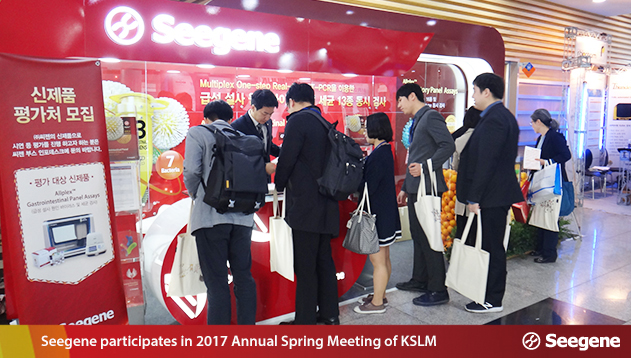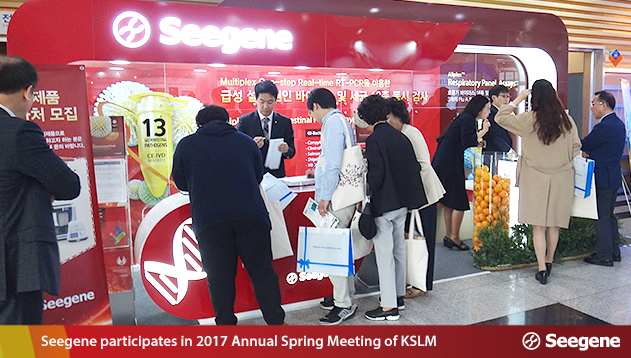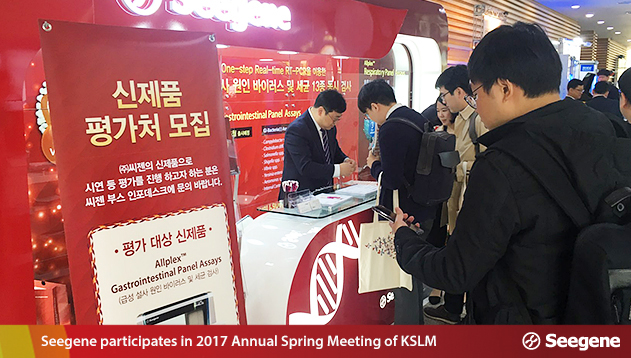Choose your country
This website contains information on products which is targeted to a wide range of audiences and could contain product details or information otherwise not accessible or valid in each country.
Seegene participates in 2017 Annual Spring Meeting of Korean Society for Laboratory Medicine
Apr 17, 2017



Seegene participated in the 2017 Annual Spring Meeting of the Korean Society for Laboratory Medicine (KSLM), which was held from April 13-14 at the Daejeon Convention Center. At this year’s conference, Seegene gave a focused featuring of the “Allplex™ Gastrointestinal Panel Assays,” a diagnostic product for gastrointestinal tract infections that is scheduled to launching in Korea in May.
The Allplex™ Gastrointestinal Panel Assays is composed of four panels from which screening tests can be selected and conducted based on the patient’s symptoms or suspected pathogen for infectious diseases related to gastrointestinal organs (e.g. acute diarrhea, food poisoning). In Korea, this will be preceded by the release of two panels that can screen for six viruses (norovirus, rotavirus, adenoviruses, etc.) and seven types of bacteria (salmonella, clostridium, campylobacter, etc.) with multiplex real-time PCR technology.
The stool culture is a diagnostic test method that used widely for gastrointestinal tract infections but with its relatively low sensitivity and long test time (normally takes for 2-4 days), it is difficult to conduct an accurate early diagnosis. The Allplex™ Gastrointestinal Panel Assays, on the other hand, screens for major pathogens of gastrointestinal infections within 2.5 hours after the extraction of nucleic acids (NA) from the stool sample. Furthermore, the product is expected to enable timely diagnosis and better selection of the most appropriate treatment method for each infected pathogens by applying it to Seegene’s unique streamlined automation process from NA extraction to result.
The KSLM has approximately 1,000 members who are medical professionals affiliated with departments of laboratory medicine in Korea and hosts two regular meetings per year. Under the slogan “KSLM, Leader of Innovation,” this year’s symposium invited experts from various countries who are at the forefront of research in molecular diagnosis and clinical chemistry. In-depth discussions were held on the importance of standardization and synchronization in the field of laboratory medicine in addition to the direction in which the field should be developed in the future.
